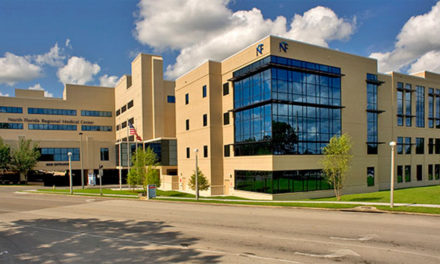Fall 2022: Early Career Physicians: Burn Notice
You can’t pinpoint the exact moment when it happens: when the fire inside you that represents passion for what you do becomes something painful. The warmth and security of the EMR now smothers you with blinking checkboxes, while you’re doggedly followed by the week’s hottest performance metric. Before you know it, your Figs are on fire, and you don’t even recognize the charred person in the mirror. We hear the term “burnout” far too often, in lectures or workshops that tell us to be stronger and more resilient.
I propose that the reality of the situation is not that we have burned out; it is that we have been burned. The arsonist is a broken healthcare system that fails our patients, arbitrary measurements of customer satisfaction, and a medical culture that views us as weak if we even consider taking a sick day. We’re expected to keep up with these rising demands, leaving us vulnerable to feelings of inadequacy when we fail to hit an impossible mark. We lose our comrades-in-arms for reasons we understand all too well, and meanwhile, we’re told to be tougher; to fix this problem that must be our responsibility. The bottom line is this: it’s not your fault. While this article discusses ways to cope with what we’re feeling, it isn’t about trying to “buck up” and “deal with it.” It’s about giving ourselves grace when we fall down—because none of us are fireproof.
1) Connect.
It starts with the patients. As we get weary, we lose the connection to our empathy. But we begin to suffer even more when we start drifting away from our friends, our family, our partners, and our children. The career becomes everything; we tie “medical doctor” into our identity, and pin our success and failure at the job into who we are. One of the things that can rejuvenate us the most is remembering how important life is outside of the doc-box. Commiserate with a colleague outside of the hospital’s four walls, and all of a sudden you realize that you aren’t alone in your frustration. Talking to a therapist (which you can even do via app) lets you connect in a more objective way while taking care of your mental health. Some days we just don’t have the strength to reach out, and that’s okay. Just remember that you aren’t alone.
2) Diversify.
If you have the bandwidth, explore developing a niche or a side gig. Perhaps you had been interested in a fellowship, but instead started working straight out of residency. It’s never too late to go back and try something new. Being able to vary your work activities might be just the type of change you need to re-balance. Maybe you want to invest in real estate on the side or open a restaurant. Maybe you want to start a new cryptocurrency. Do what brings you joy.
3) Change.
You can choose your employer; you can choose to take time off; you can even choose to leave medicine entirely. Some are living lives of quiet desperation, convinced there is no way out. I came here to say: you have a choice. Stop being burned by your employer. You can choose to work at a place you’re valued. Undoubtedly, there are often circumstances where one is deeply invested in a house, a community, or a retirement plan, certain that you “can’t” leave; but especially for those of you in your early career, remember that you have many years ahead of you. Weigh the cost of transplanting your life against your daily well-being. There is always a way to make it work.
Hospitals may continue to offer pizza as a salve for our tired souls, while we work with inadequate staffing and bureaucratic mandates for the foreseeable future. And we will persevere, however much or little we are given. But give your burns a chance to heal—step out of the burning room. ■
This article is part of the following sections:





